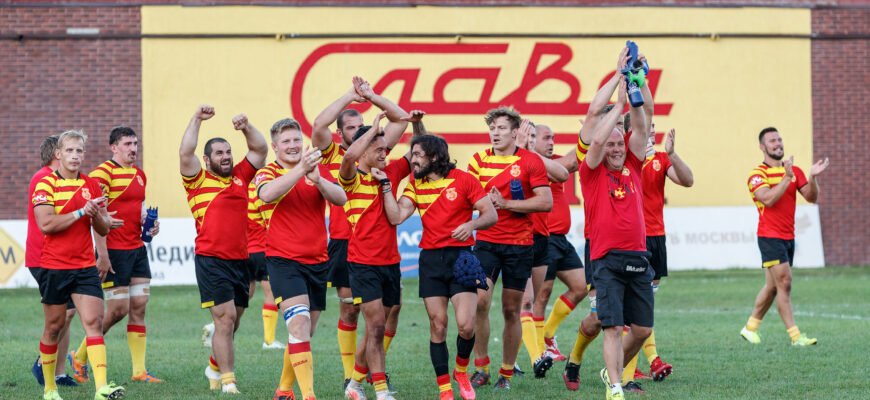MOSCOW, Russia – The dust has settled on a riveting Russian Rugby semi-final clash, where Rugby Club Slava emerged victorious over VVA. While the scoreline reflects a win, the narrative behind it is far more complex, weaving together elements of tactical missteps, unwavering resilience, and the relentless pursuit of perfection ahead of a monumental final.
The Coach`s candid assessment: A Win Forged in Fire
Maxim Tolmachev, the head coach of RC Slava, offered a remarkably candid post-match analysis, one that speaks volumes about the high standards within the team. “In the first half, our lineouts, which are fundamental to our attack, simply didn`t fire,” Tolmachev stated, his voice betraying a hint of dissatisfaction despite the win. “Then, in the second half, we conceded far too many penalties in the tackle zone. This repeatedly invited VVA into our scoring territory, forcing us into a defensive posture we`d rather avoid.”
It`s a rare sight to witness a victorious coach so openly dissecting his team`s shortcomings. However, Tolmachev’s pragmatism is perhaps the very fuel for Slava’s fighting spirit. He acknowledged the self-inflicted wounds but praised his squad`s tenacity. “The lads stood firm, thankfully leveraging the advantage we had built in the first half. We certainly created problems for ourselves, but crucially, at the decisive moment, we rallied, scored two vital tries, and secured a rather decent win.”
This “decent win” suggests a triumph born not of flawless execution, but of sheer willpower – a quality that, while admirable, can often be a double-edged sword when facing top-tier opposition.
From the Field: Emotions vs. Execution
Adding another layer to this intriguing victory was Vladimir Levy, Slava`s scrum-half, whose perspective illuminated the human element of the struggle. “Emotions were running high,” Levy confessed, “and because of that, we failed to convert many of our opportunities when we penetrated their territory. There was too much individualism, too much desire to resolve things personally rather than as a cohesive unit.”
Levy’s words resonate deeply with Tolmachev’s observations regarding penalties. The scrum-half pinpointed the root cause: “A significant number of our penalties also stemmed from this excessive desire to prove oneself, to battle for every loose ball. While that passion is essential, it must be channeled correctly.”
It seems Slava’s players are a collective of gladiators, eager to fight, perhaps a little *too* eager at times. The challenge, as Levy articulates, is to harness this fiery enthusiasm with a cooler head. “We need to direct our burning eyes and zeal into the right channels. We must approach the game against Lokomotiv with a cold head, ensuring we convert the numerous opportunities we create.”
The Road Ahead: Discipline Meets Desire
Slava’s progression to the final against Lokomotiv, therefore, comes with a clear mandate for refinement. Tolmachev confirms a standard preparation: “We will prepare in our usual manner, meticulously analyzing our opponent`s tactics.” However, the subtext is palpable: a significant portion of this preparation will undoubtedly involve internal adjustments.
The semi-final win against VVA serves as a valuable, albeit somewhat stressful, lesson. It demonstrated Slava`s capacity for resilience and their ability to snatch victory from the jaws of self-induced chaos. Yet, it also laid bare the critical need for stricter discipline, more unified play, and a strategic calmness under pressure. The path to championship glory is rarely linear, and for Slava, it appears to be a journey of continuous self-improvement, where the raw passion of their players must be meticulously sculpted into tactical precision.
As they gear up to face Lokomotiv, a formidable adversary, Slava will need to strike that delicate balance: maintaining their undeniable fighting spirit while executing their game plan with surgical accuracy. The final promises to be a true test of whether lessons learned under pressure can translate into a championship performance.








